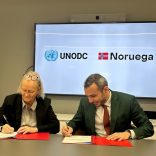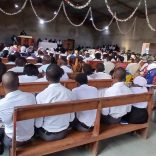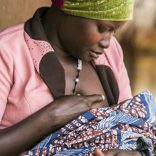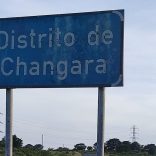Mozambican university wants to learn from China's industrial policies
Mozambique: Cabo Delgado, Nampula & Niassa Humanitarian Snapshot – September 2021

FFood insecurity displacement. [ UN OCHA]
Overview
In September 2021, fear of attacks and clashes between security forces and non-state armed groups in Palma, Nangade, Mocimboa da Praia and Muidumbe continued to drive displacement, although at a far lower rate than in July and August.
There were 2,748 people on the move in September, of whom 48 per cent were children, according to IOM.
Although there were reports of small numbers of people returning to areas recaptured by the Government and allied foreign forces, the information was difficult to verify.
With the situation remaining volatile and attacks by non-state armed groups continuing, the Protection Cluster continued to emphasise the importance of returns taking place only when security conditions are met and services restored, in line with accepted standards.
Meanwhile, 57 Mozambican asylum seekers were refouled from Tanzania in September, including 14 men, 19 women and 24 children, according to UNHCR.
Nearly 745,000 people were estimated to be internally displaced in northern Mozambique by September 2021—including 642,404 people in Cabo Delgado, 99,448 in Nampula, and 1,221 in Niassa—according to IOM’s Displacement Tracking Matrix (DTM) Baseline Assessment Round 13.
This represents an increase of more than 12,700 from the last Baseline Assessment Round 12, which was conducted in April 2021.
Between April and September, there was a slight decrease in the number of displaced people living in Cabo Delgado (662,828 to 642,404), while the number of displaced people who fled to Nampula and Niassa increased.
Children and women accounted for 52 per cent and 27 per cent of displaced people, respectively. Among those forcibly displaced, there were nearly 10,800 elderly people, more than 3,800 unaccompanied children, over 3,400 pregnant women and more than 800 people with disabilities.
The situation in September remained characterised by widespread humanitarian needs and serious protection concerns.
The conflict continued to drive hunger—with around 900,000 people estimated to be severely food insecure—while people in need received only half rations due to under-funding.
In September, 1,534 children aged 6 to 59 months were screened by UNICEF and partners for acute malnutrition in six communities in Cabo Delgado, 75 of whom were treated for severe acute malnutrition (SAM).
Gender-based violence remains a major concern, with UNHCR focus group discussions in Pemba highlighting sexual exploitation of women and children, child labour, risk of sexual abuse, trafficking and sexual slavery as risks.
Meanwhile, malaria cases have increased by nearly 70 per cent between 2020 and 2021, with 645,581 cases recorded from January to September this year, compared to 379,873 during the same period last year.












Leave a Reply
Be the First to Comment!
You must be logged in to post a comment.
You must be logged in to post a comment.